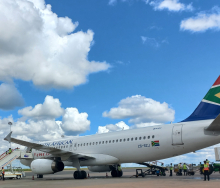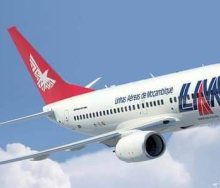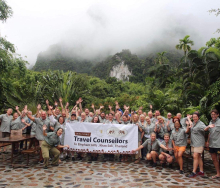Despite the severe impact of COVID-19 on the MICE industry, Gauteng Tourism Authority (GTA) has been hard at work rolling out various strategies aimed at positioning the province as Africa’s premier business events destination.
Talking to Travel News, acting ceo of GTA, Barba Gaoganediwe, said Gauteng had always been a thriving business events destination and that now, the province had been actively searching for new ways to use the trials that South Africa’s MICE industry had experienced during the pandemic to emerge stronger and to bring in new opportunities.
Although impacted by budget cuts, Barba explained that GTA was employing collaborative approaches to leverage a number of new opportunities to bring more MICE business to the province.
“There are many ways to turn the wheels of the pandemic into opportunities. South Africa’s medical industry, for example, has emerged as a world-class leader in COVID-19 research during this period. South African investment in our health sector during this time and our methods for fighting the pandemic are of global interest to the medical community, as are our mega health facilities such as the Chris Hani Baragwanath Academic Hospital (the largest hospital in sub-Saharan Africa) and the Nelson Mandela Children’s Hospital (the largest children’s hospital in Africa). We also continue to attract attention as a medical destination, as high levels of patients from the rest of the continent flock to South Africa to take advantage of our top-level medical facilities. As such, we believe that we can build a compelling case to bring more medical conferences to Gauteng and turn the pandemic into an opportunity for the MICE sector,” said Barba.

Gauteng had also become world renowned for its cutting-edge banking and finance industry, said Barba and, through GTA’s involvement with a number of international organisations, it was establishing Johannesburg as a hub for commerce and financial services events. This would mean that instead of actively competing for MICE events, destinations would rather collaborate and direct sector events to destinations best suited to host these. For example, while financial conferences would be directed to South Africa, technology events may be directed to Dubai and agricultural events to Tanzania. Similarly, the GTA is collaborating with SA Tourism’s global offices and its provincial authority counterparts to direct events to the provinces that leverage each area’s unique strengths rather than to use up resources tendering aggressively against one another.
Barba also pointed out Tshwane’s status as the second-largest diplomatic capital in the world (Gauteng is home to the second-largest number of embassies in the world). The GTA is actively engaging with these embassies to open the doors for Gauteng to host more diplomatic conferences and events.
He added that Gauteng was home to almost two million university students and the region was renowned for its strong research faculties. “With the help of the Gauteng Experts Club, which was established in partnership with our universities, we aim to increase the number of academic conferences and events hosted in Gauteng,” said Barba.
Barba said the province had also kickstarted the reopening of the MICE industry through the hosting of hybrid events that allow organisations to engage and exchange knowledge in both virtual and physical spaces.
“We have just concluded the Africa Business Events MICE Masterclass, which was a hybrid event hosted in Melrose Arch in collaboration with the African Tourism Association. Because of the continued growth of our infrastructure and our penetration in terms of connectivity, we found the cross-over to the hosting of hybrid events seamless in its execution,” said Barba.
Discussing the impact that the pandemic had had on Gauteng’s MICE industry he remained optimistic in his outlook.

“Although Gauteng has always been a thriving business events destination we were sadly obstructed at a time when we had built an incredibly solid pipeline of events, which were in place for 2020, 2021 and 2022. Luckily, because of the good relationships we have with events operators, we were able to use these longstanding relationships to negotiate the rescheduling, rather than the loss, of most of these events, which has resulted in a global business events calendar that has been pushed back to 2022 and 2023 to accommodate this unfortunate situation. The sector is now beginning to reopen, but in a cautious and safe manner, which will allow us not only to remain the preferred home for multinational global events and incentives but to propel ourselves forward to take advantage of new opportunities,” said Barba.














